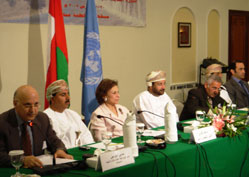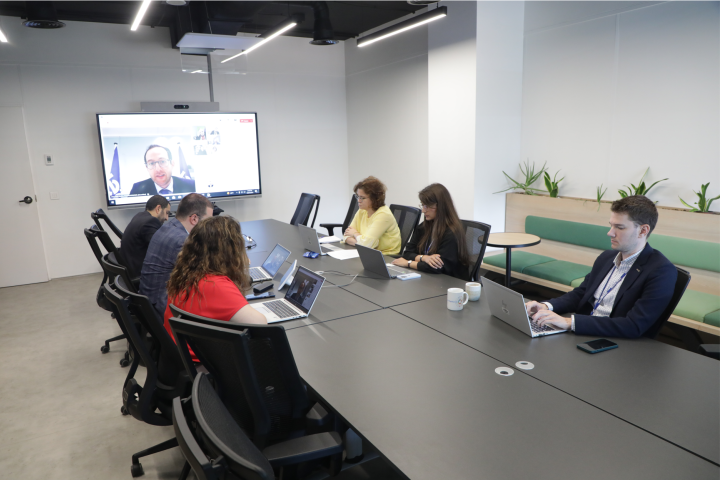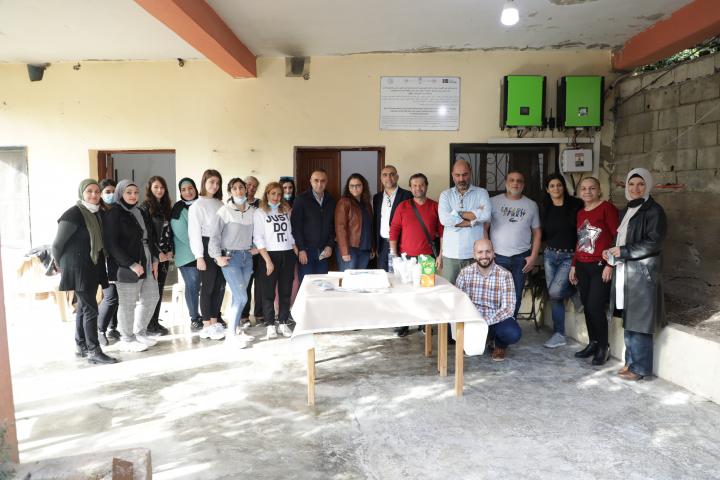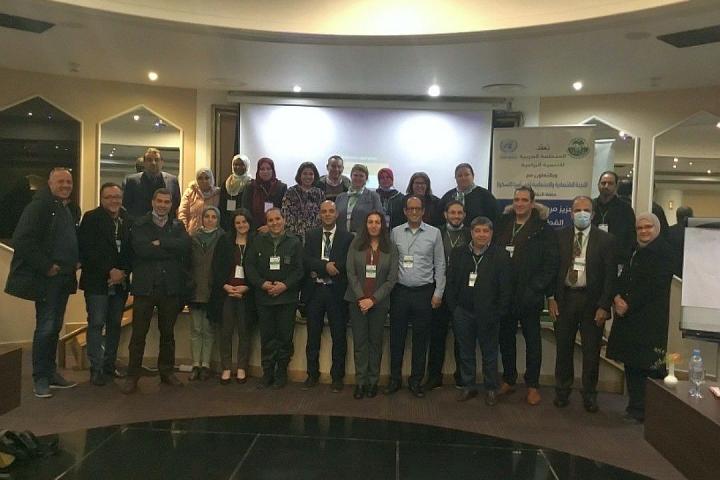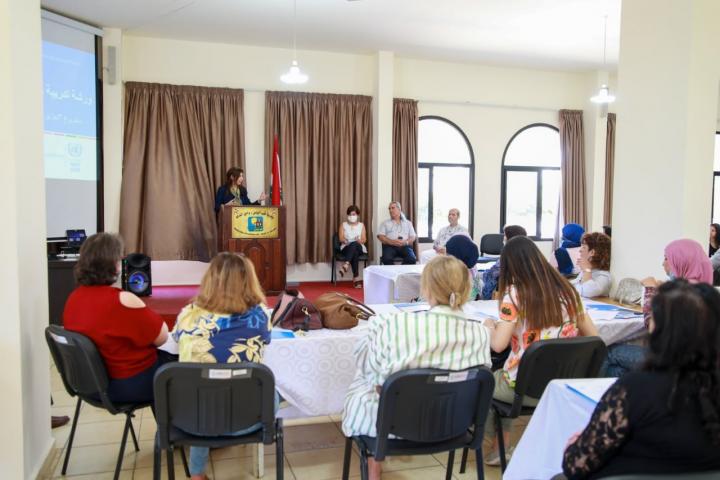Within the framework of the Oman Water Week organized by UN-ESCWA and the Ministry of Regional Municipalities, Environment and Water Resources, Muscat hosted two major events, namely: the Expert Group Meeting (EGM) on Legal and Institutional Reforms for the Implementation of Integrated Water Resources Management in the UN-ESCWA Region (18-20 March 2007) and the Seventh Session of the UN-ESCWA Committee on Water Resources (20-22 March 2007).
Participants in the first meeting included a group of experts, consultants, academicians, representatives of research centers concerned with water issues, as well as regional and international governmental networks. The second meeting was attended by government representatives of UN-ESCWA member countries who are also permanent members in the Committee on Water Resources, in addition to representatives of the United Nations organizations and programmes, as well as non governmental organizations accredited by the Economic and Social Council of the United Nations.
National Institutional Reforms in the Field of Water
The EGM was held in cooperation with the German Government represented by the Federal Institute for Geosciences and Natural Resources (BGR) and the German Technical Cooperation Agency (GTZ). The meeting, which was opened by Under-Secretary of the Ministry of Regional Municipalities, Environment and Water Resources Abdullah Bin Naser Al Bakri, aimed to review and discuss the UN-ESCWA Guidelines for Legislative and Institutional Reforms Needed for the Implementation of Integrated Water Resources Management (IWRM) at the National Level. The Guidelines address the institutional reform of the water sector in UN-ESCWA member countries in light of previous regional and international experiences.
The meeting concluded with a set of region-specific recommendations to enrich the Guidelines, namely: involving water stakeholders in the formulation of the national water management plan especially when related to the identification of priorities; including the water scarcity crisis in the national security and political stability plan of member countries; encouraging cost recovery of water resources while taking due consideration of the poor; establishing a sector-based information system for data on water resources with interlinks in order to secure access to information by all sectors; and undertaking the necessary reform to water related legislations as well as specifying the appropriate penalties and sanctions to deter non-compliance. These recommendations were raised to the Seventh Session of the UN-ESCWA Committee on Water Resources for discussion.
Seventh Session of the Committee on Water Resources
The Seventh Session of the Committee on Water Resources was held under the theme "Institutional and Legal Reform for the Implementation of IWRM in the UN-ESCWA Region". The aim of the session, which was opened by Omani Minister of Regional Municipalities, Environment and Water Resources Sheikh Abdullah bin Salem al Rowas, was to provide a forum for discussion on the water situation at the national and regional levels and allow member countries to present their achievements, developments and challenges in the field of water resources.
The increasing pressure on water resources has driven most UN-ESCWA member countries to review and develop their water strategies and policies, and to take a set of institutional, legislative and economic measures designed to optimize the management of water sectors and achieve IWRM. The session also aimed to discuss the draft feasibility study on the "Establishment of a Regional Mechanism for Building Capacities to Manage Shared Water Resources", which was prepared by the secretariat pursuant to the resolution that was adopted by the twenty-third UN-ESCWA session in that regard. An additional goal of the session was to acquaint member countries with the UN-ESCWA draft programme of work for the biennium 2008-2009 in the field of water resources, and make recommendations on the legislative and institutional reform needed for the application of IWRM at the national level.
Participants also discussed the national policies for the application of IWRM in the UN-ESCWA region. They reviewed the progress made in the field of water resources in UN-ESCWA member countries over the past five years as part of the Johannesburg Plan of Implementation, and the actions taken in the field of water resources since the sixth session of the Committee on Water Resources (December 2004).
At the end of the Session, the participants came up with a set of recommendations addressed to member countries and to UN-ESCWA. They requested member countries to carry on their efforts in developing and enhancing the institutional framework for achieving IWRM as part of the Johannesburg Plan of Implementation and pursuant to the Millennium Development Goals. They also asked member countries to adopt the participatory approach in water management as well as to review and update their national legislative framework for water management. Participants called on UN-ESCWA to assist member countries in building national capacities within the framework of IWRM, and to support them in formulating national strategies and policies to manage shared water resources according to the principles of IWRM. They also requested UN-ESCWA to modify the draft feasibility study on the "Establishment of a Regional Mechanism for Building Capacities to Manage Shared Water Resources" according to the needs of member countries.
World Water Day
It is worth mentioning that the conclusion of the Oman Water Week coincided with the World Water Day (22 March) held under the theme "Coping with Water Scarcity". On this occasion, the OmaniMinistry of Regional Municipalities, Environment and Water Resources and the Omani National Committee for the International Hydrology Programme held a celebration on the eve of World Water Day where Executive Secretary Mervat Tallawy delivered the statement of United Nations Secretary-General Ban Ki-Moon in addition to her statement.
